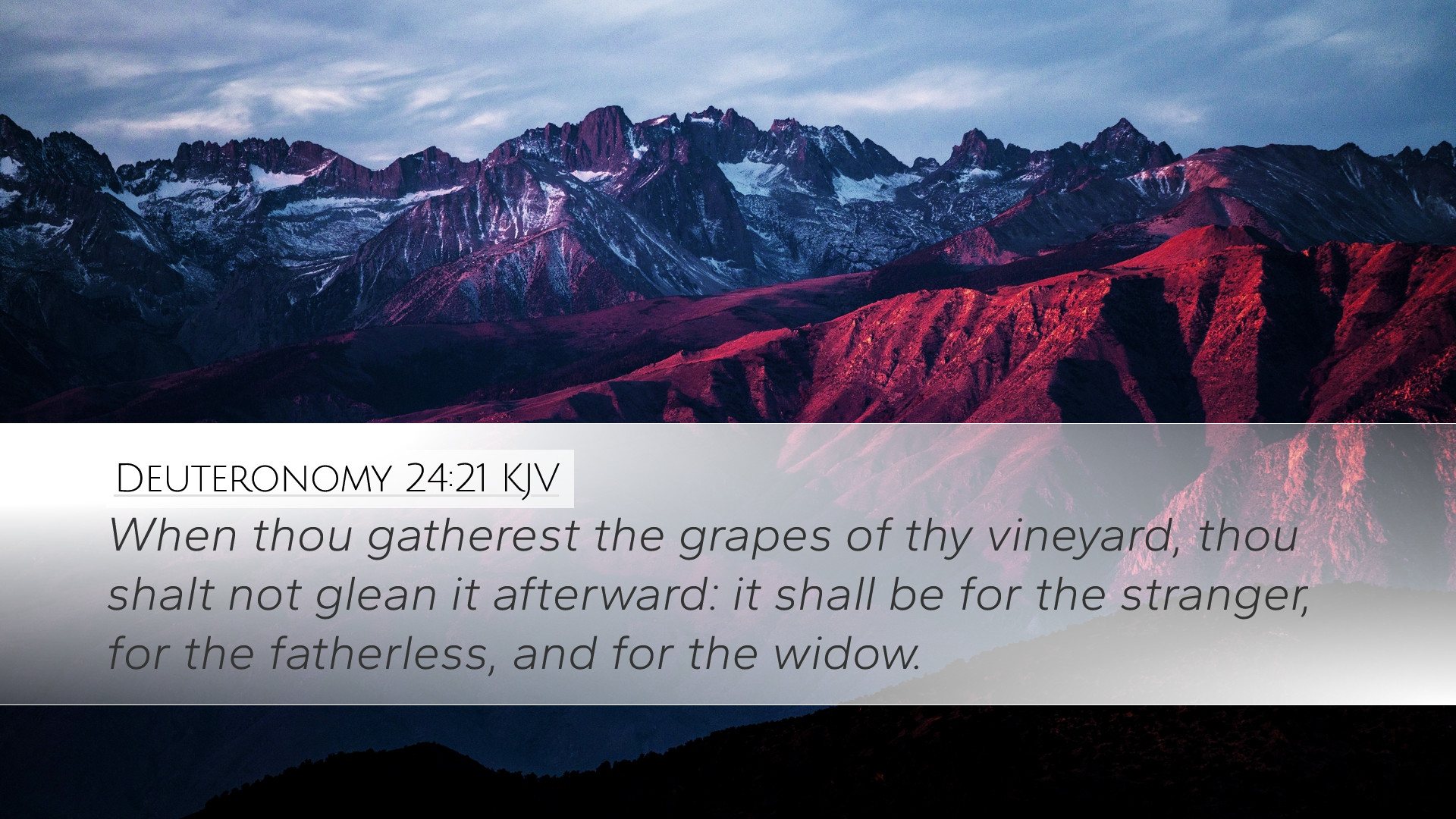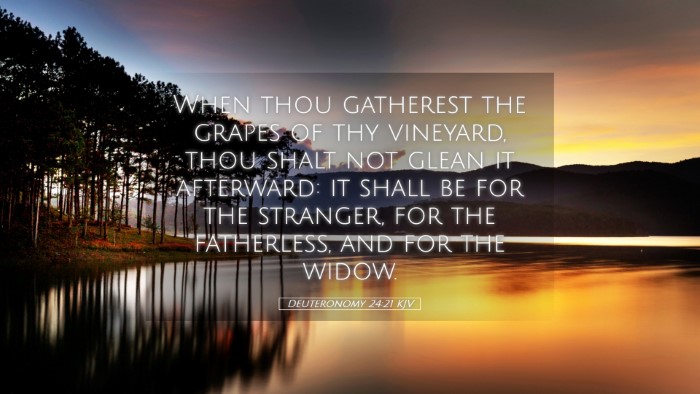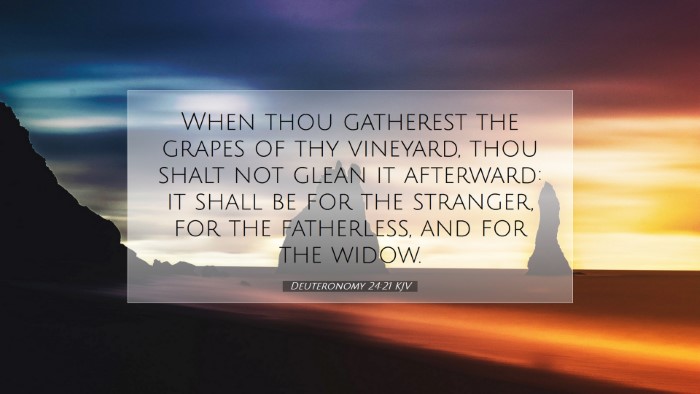Commentary on Deuteronomy 24:21
Verse: "When you gather the grapes of your vineyard, you shall not glean it afterward; it shall be for the sojourner, the fatherless, and the widow."
Introduction
This verse addresses God's concern for social justice and the welfare of the vulnerable in society. The stipulations given here highlight important aspects of the Hebrew understanding of community and charity. Public domain commentaries provide rich insights into this verse, reinforcing its significance in the context of the Mosaic Law and its implications for the Kingdom of God.
Contextual Analysis
The context of Deuteronomy involves Moses reiterating the Law to a new generation of Israelites about to enter the Promised Land. The laws laid out serve not only as regulations but as a reflection of God's character and His expectations for His people.
- Historical Background: The Israelites were to remember their own experience as sojourners in Egypt and thus demonstrate compassion toward the marginalized.
- Social Justice: The inclusion of the sojourner, fatherless, and widow in this command reflects an essential social ethic rooted in the Torah.
Theological Insights
This command encapsulates several theological themes that resonate through the entirety of Scripture:
- Charity and Compassion: As explained by Matthew Henry, this law embodies the spirit of charity that should characterize God’s people, urging them to care for those who cannot provide for themselves.
- Divine Provision: Albert Barnes notes that the act of leaving the edges of the vineyard for the needy indicates that God provides not just for the rich but looks after the needs of the poor.
- Community Responsibility: Adam Clarke emphasizes that this command extends beyond personal charity; it implies a communal responsibility to support the less fortunate.
Interpretation of "Gleaning"
The act of gleaning is a significant practice described in several places in the Bible. It allowed for the provision of basic needs for those in society who were economically vulnerable.
- Definition: To glean means to collect leftover crops from farmers. The practice increased the welfare of the needy and reinforced community ties.
- The Importance of Generosity: Matthew Henry asserts that this act teaches the principle of not hoarding everything for oneself, highlighting the value of generosity and God's provision.
Application of the Command
Understanding this verse requires the application of its principles to contemporary society. The insights from the commentaries suggest several practical applications:
- Community Programs: Modern congregations can develop programs that support the needy, echoing God’s command to care for the marginalized.
- Personal Responsibility: Individuals are encouraged to look for ways they can "glean" in their own communities, discovering creative methods to assist those in need.
- Advocacy for the Vulnerable: The church can take an active role in advocacy, creating systemic change to support social justice and the support of the fatherless and widows.
Conclusion
Deuteronomy 24:21 encapsulates a powerful command that is as relevant today as it was in ancient Israel. By sharing the abundance of God's blessings, we foster a community that reflects God's character to the world. Through an understanding of this verse, its cultural context, and theological implications, we can inspire contemporary applications that lead to embodied faith in action among our communities.
Further Reflections
This verse reminds us that the message of love and charity is foundational to the life of faith, and as students of the Word and teachers of the Gospel, we must take this command seriously as we seek to live out the implications of God's heart for justice and compassion in our lives and communities.


